Brazil. Part IV. Belo Horizonte—Rio de JaneiroMap
January All Brazilian hotel elevators have identical panels. You keep wanting to push the button all the way in, but it’s a touch sensor. 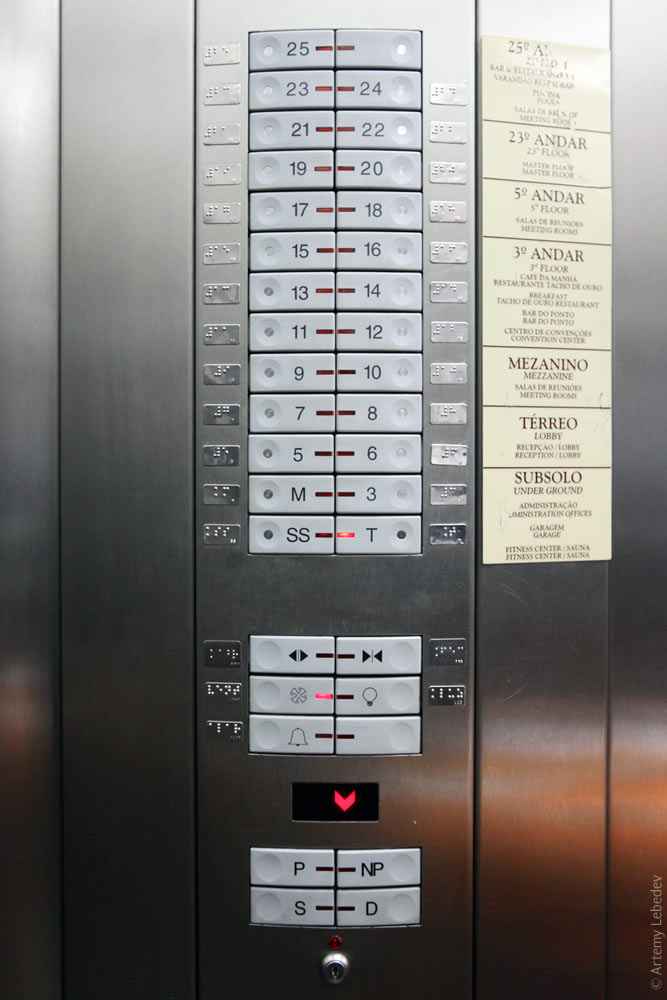 Belo HorizonteMapA pleasant city for which I didn’t have enough time remaining. 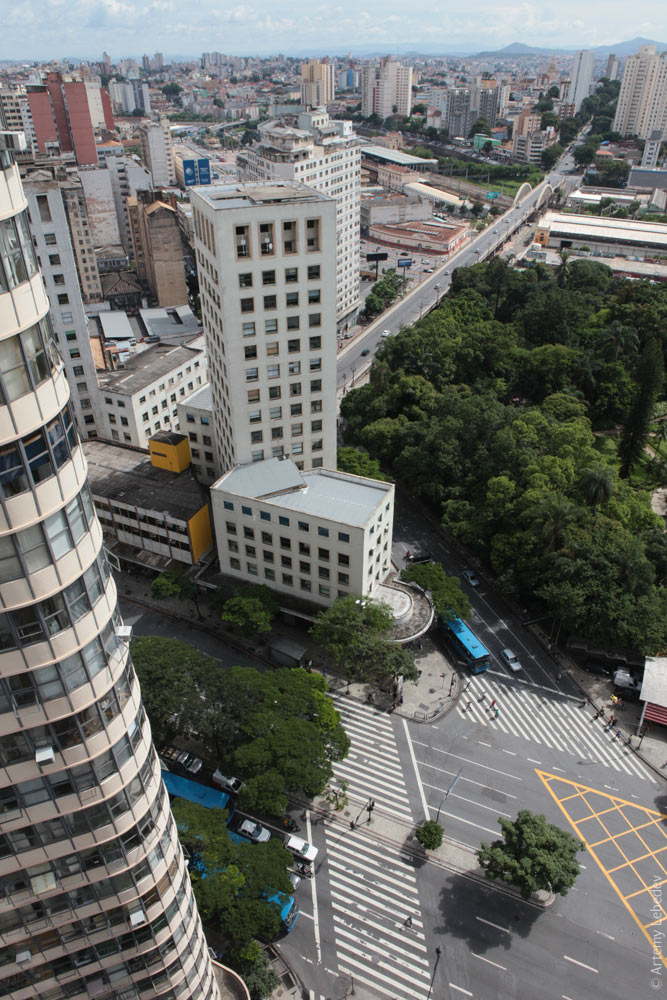 The Belo Horizonte trash can, payphone shell color, and traffic light. 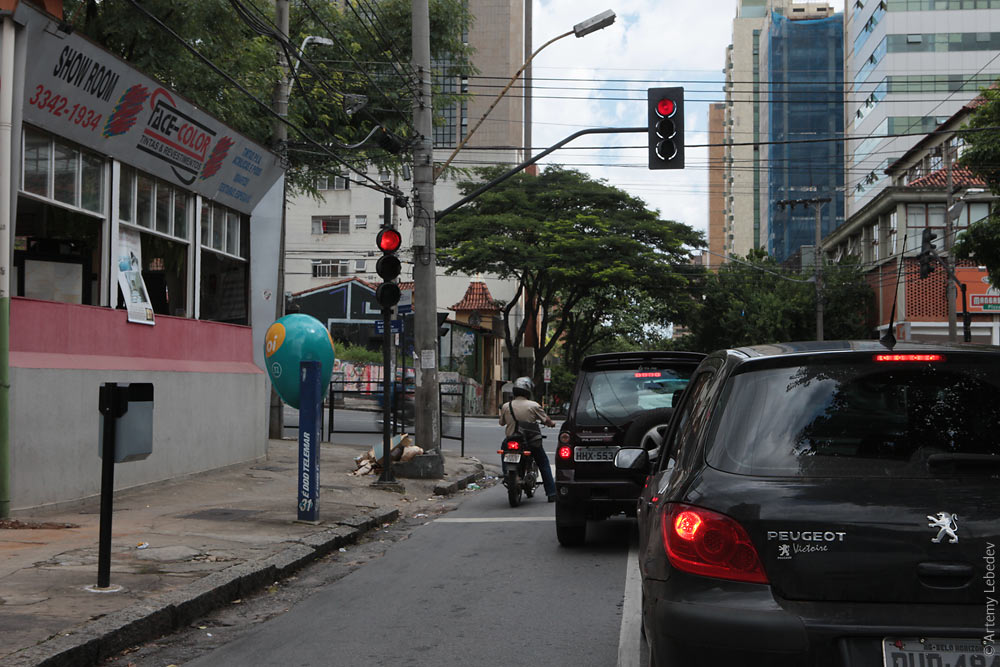 Street cleaners use brooms made from palm leaves.  It began to rain and kept pouring, pouring, pouring without end. 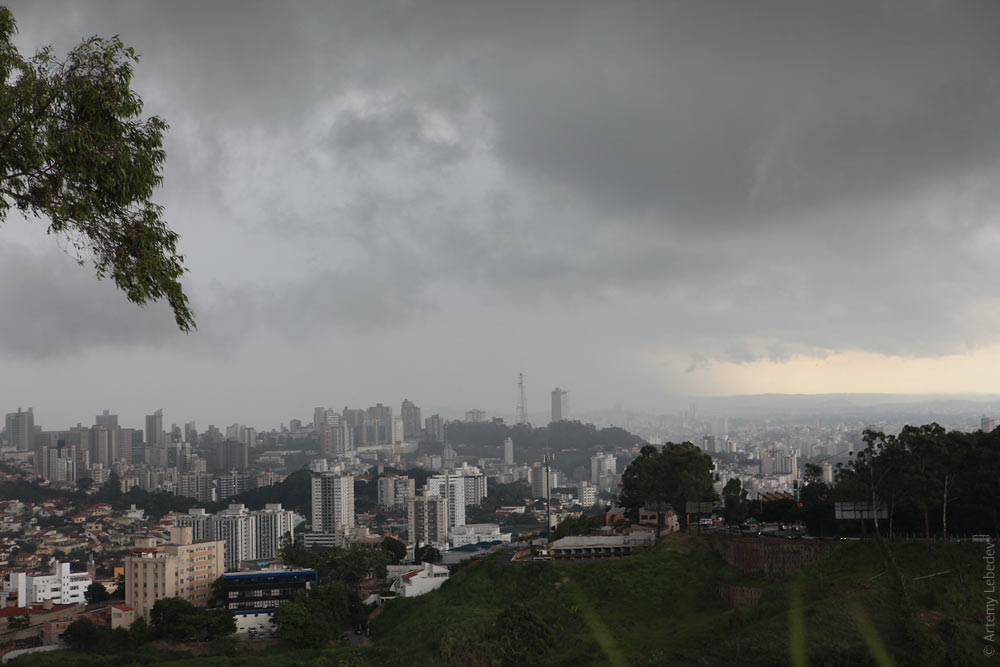 Everything was underwater. 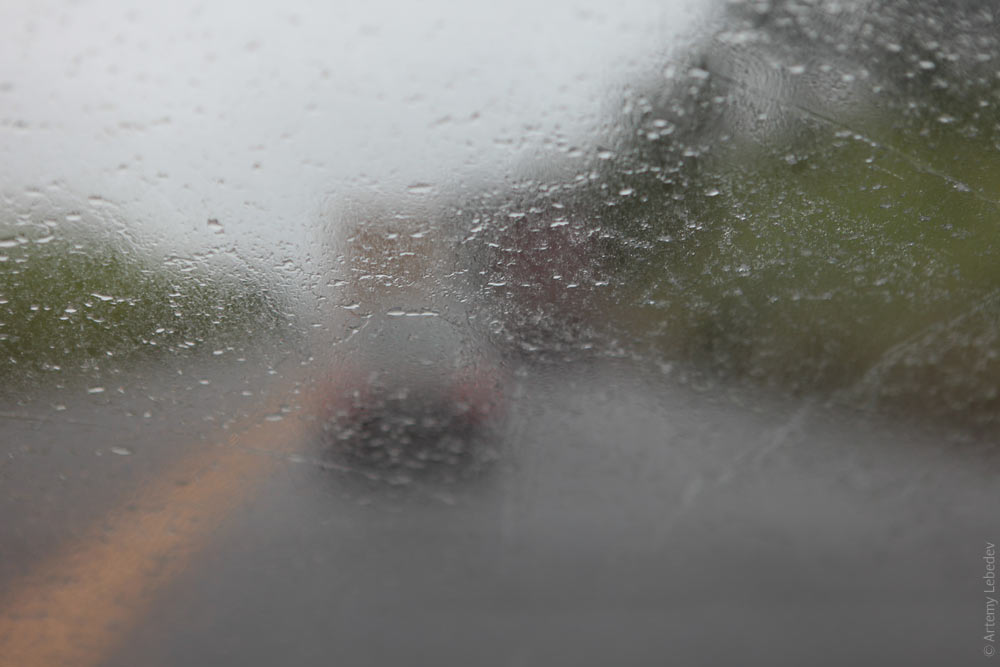 One mountain got eroded by the rain, and I saw a rockslide on the highway for the very first time. Up until then, I had only seen one on traffic signs. Highway service workers had already brought in a metal man and set him up on the road in advance of the rockslide to alert drivers. Very smart.  Mountains, a fairly steep banked slope, and pouring rain. The road is very slippery. The Volkswagen in front of me suddenly starts to skid and swerves, trying not to crash into its neighbors. I hit the brakes several times, but they’ve stopped working. I use my steering wheel to prevent myself from skidding off the road and keep the wheels straight. But at this point I’ve got three rear ends in front of me to choose from, so I opt to brake into the curb instead. First with the front wheel, then with the back. The car stops, but the steering wheel begins to behave highly unpredictably: the connection between it and the wheels has suddenly become unapparent. My Chevrolet Zafira (Opel cars are sold under the Chevrolet brand in Brazil), having carried me for nearly 3000 kilometers, is no longer fit for driving. Not without some resourcefulness, I manage to call a tow truck which is supposed to take me to an auto repair shop approved by the rental car agency’s insurance company. No one in this chain speaks English. Once my car was on the tow truck, it became evident that its wheels were no longer on the same plane. 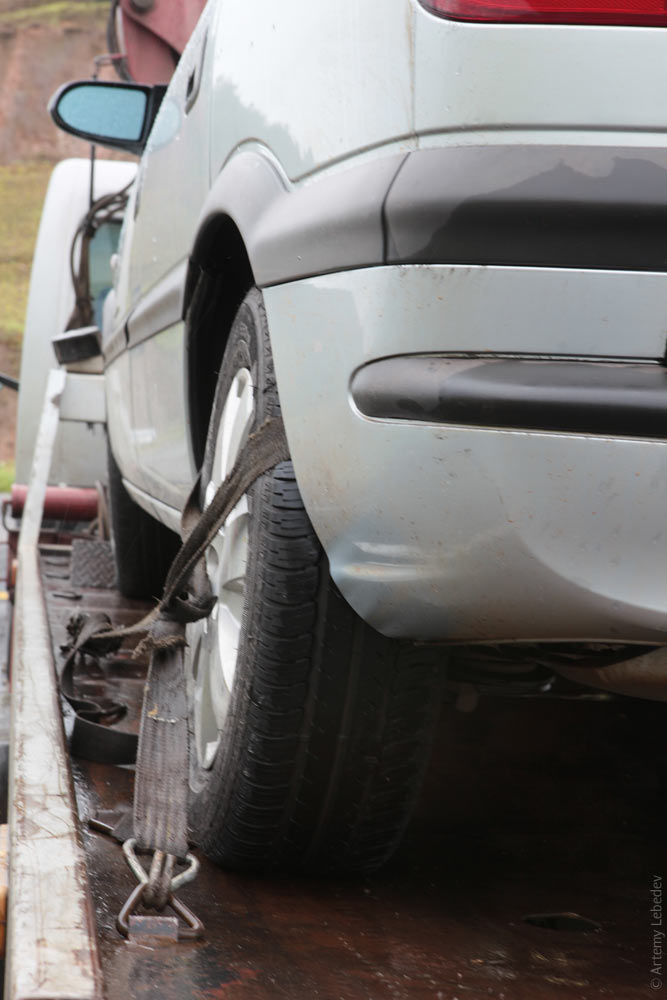 By the way, car rentals here seem to have never heard of GPS navigation systems. Luckily, Google turned out to have detailed and accurate maps covering the entire territory of Brazil. An iPhone is extremely inconvenient to use as a GPS in a car, but nonetheless it met the challenge splendidly—I was able to get from any one point to any other. Juiz de ForaMapThe logo of the Rotary Club masonic sect is installed at the entrance to the city. Their logo appears as you drive into every city in Brazil.  The auto repair shop provided me with an excellent opportunity to ponder my own mortality. Here, for example, is a car which managed to wrap itself perfectly around a pole with the driver’s door and seat, without sustaining any other serious damage. Compared to this, my accident was more like a mosquito bite. 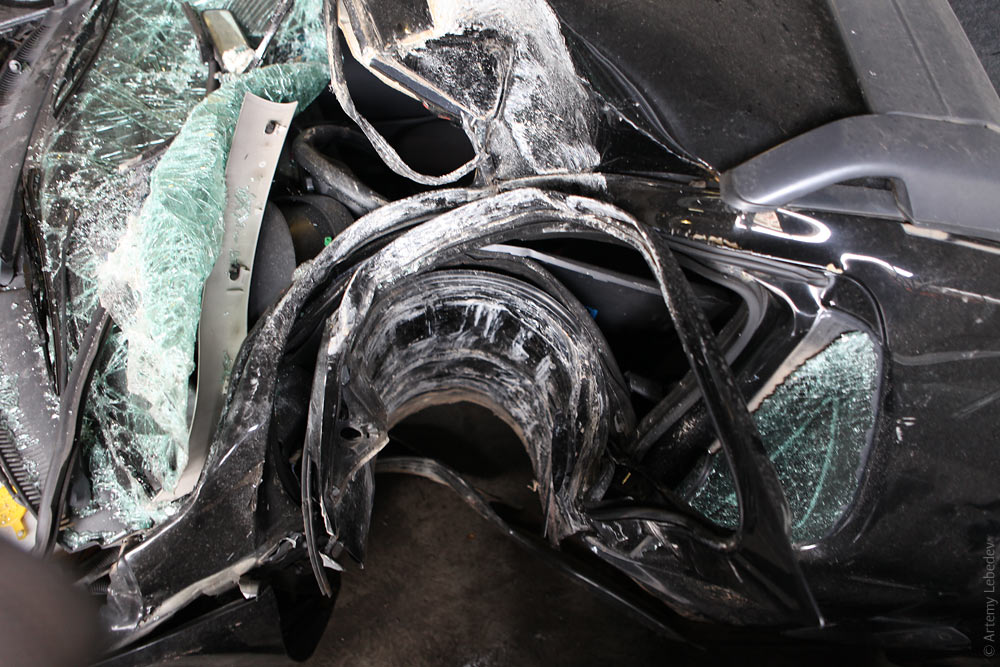 Rio de Janeiro was just a stone’s throw away. The rental agency sent over a taxi. An excellent idea: pointing lights in the direction of traffic in one-way tunnels. You get illumination that doesn’t blind drivers. 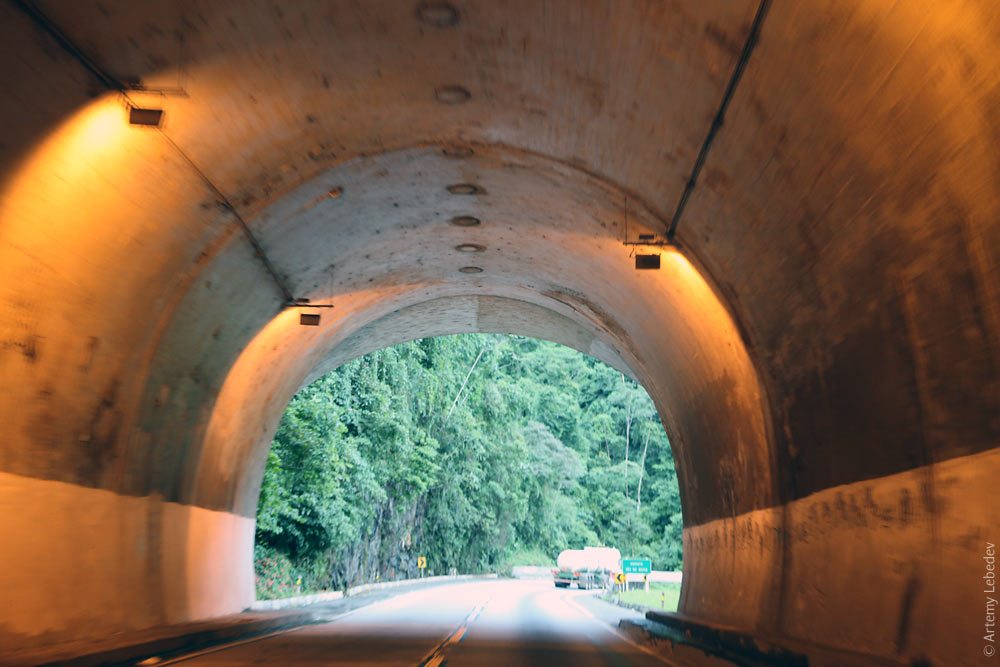 The forests here are full of wild monkeys, which roadside signs conscientiously warn you about. 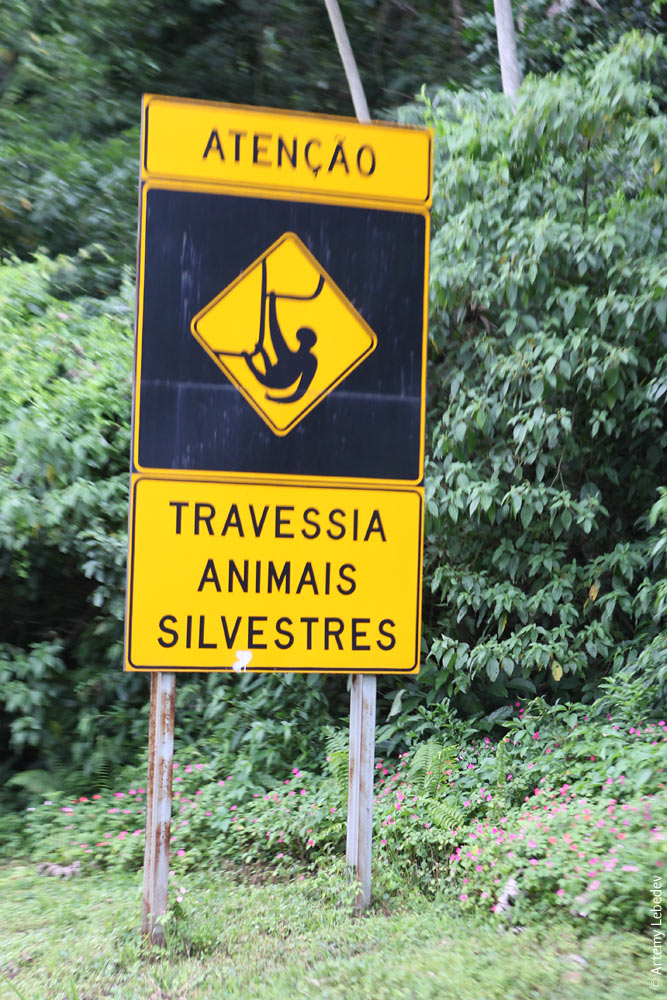 Rio de JaneiroMap
The traffic jams in the city are comparable to Moscow, so by the time my taxi crawled over to a safe neighborhood, it was already dark. 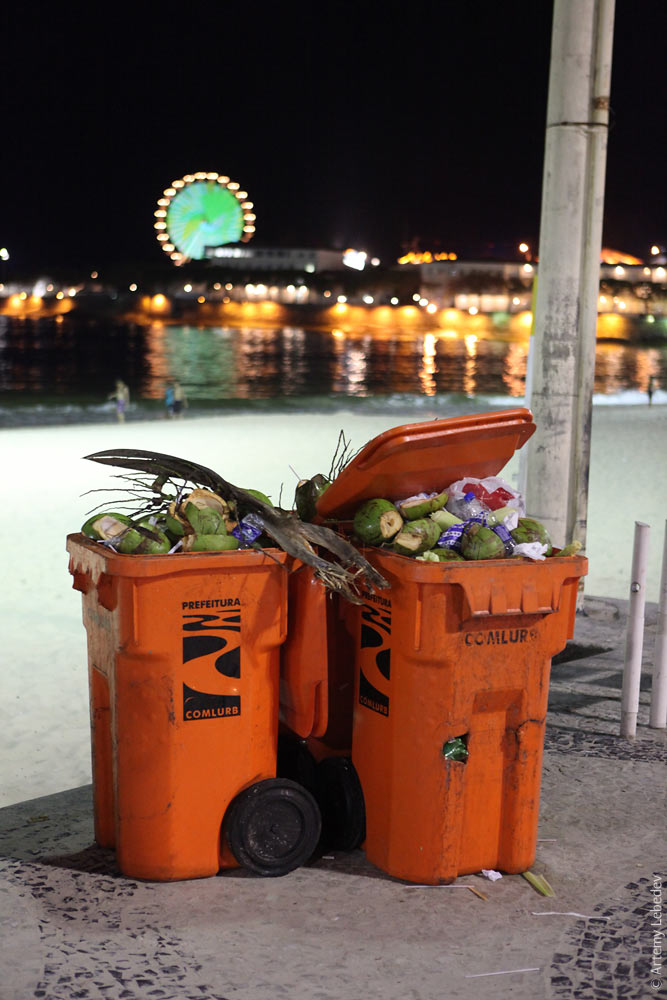 It was here that I found out that Copacabana is the name of a beach. The word existed in my memory somehow, but I never would have thought this toponym belongs to a place located here (the last time I was this surprised was when I found out that Casablanca is located in Morocco). Everything is dandy in the tourist areas, the street signs are lit up at night. 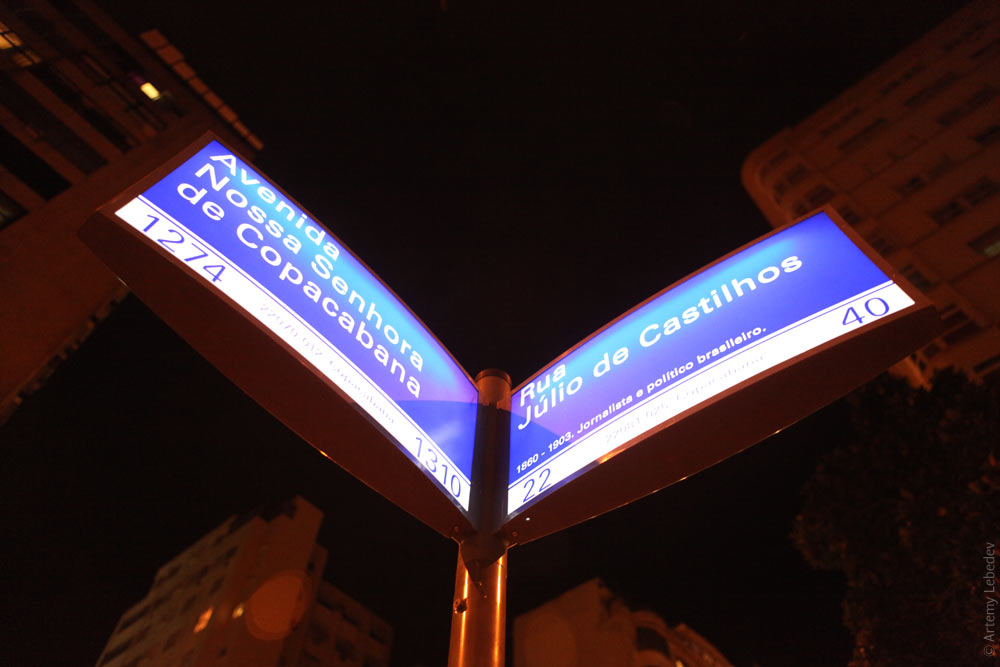 The tourist areas and beaches are considered safe. 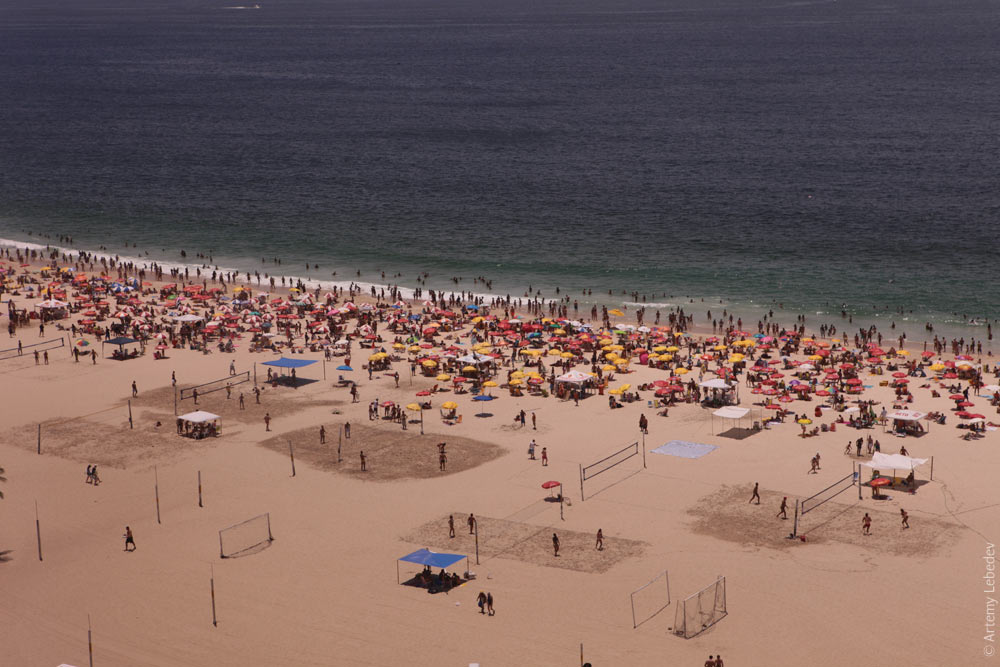 Every discarded soda can or coconut here is immediately picked up and towed away. 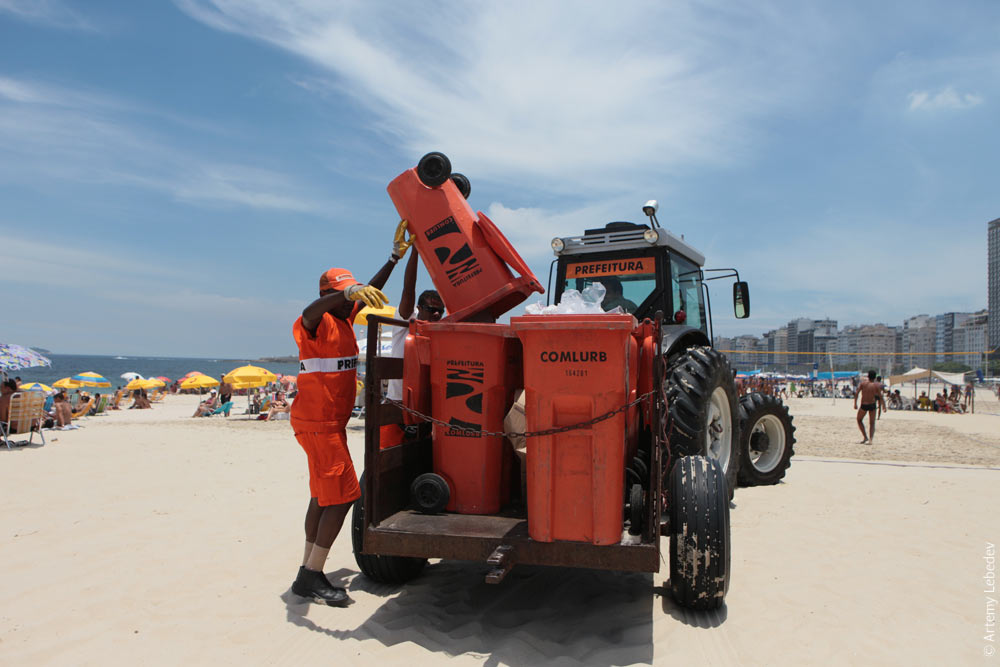 There are various kinds of traffic lights here. On pole stubs. 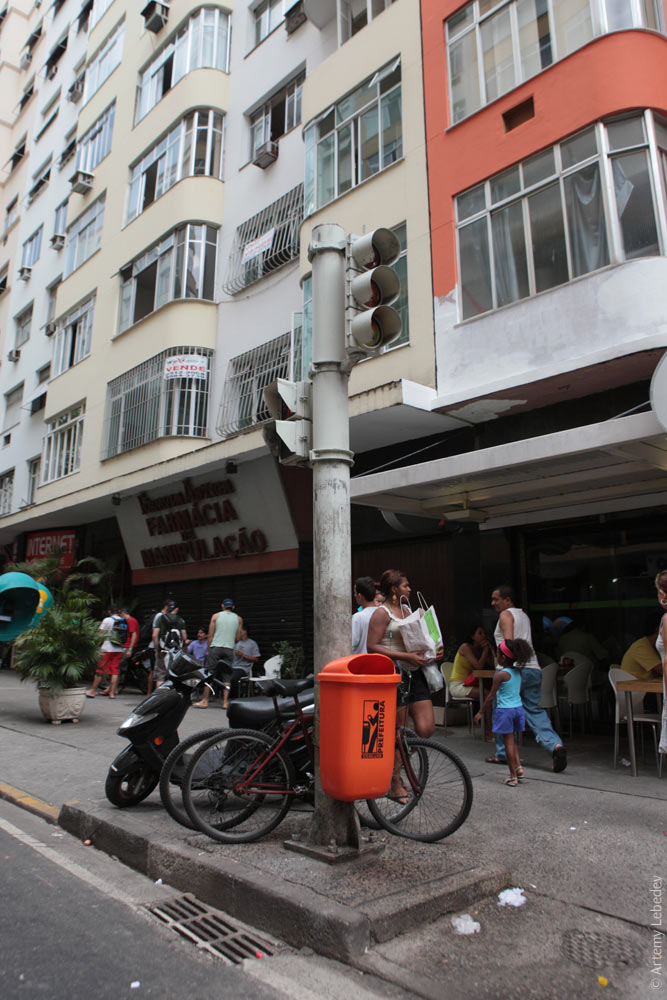 And intact poles. 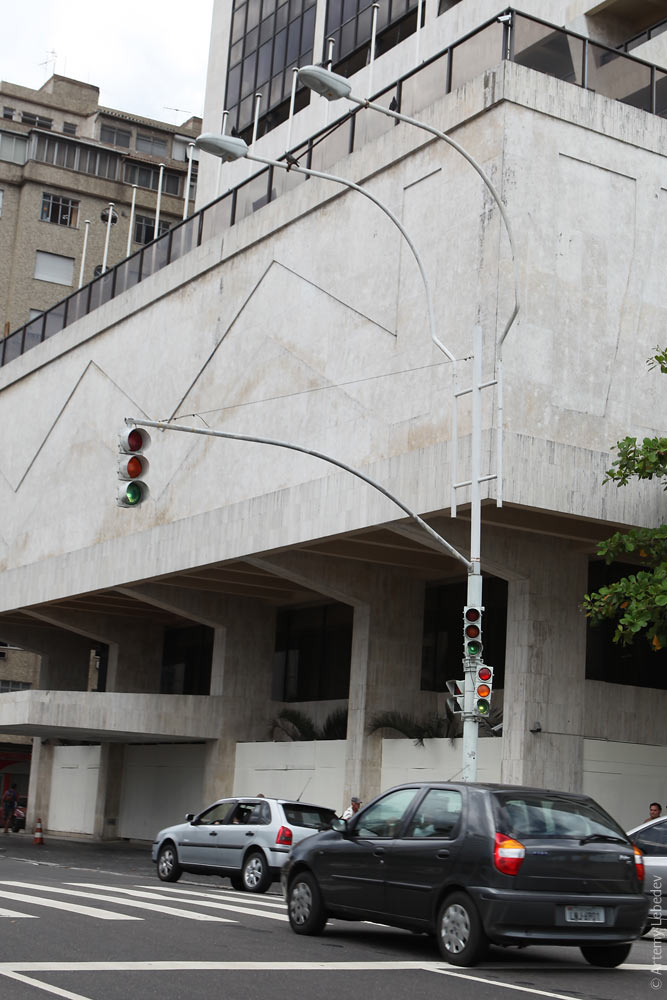 And traffic lights integrated into street signs. 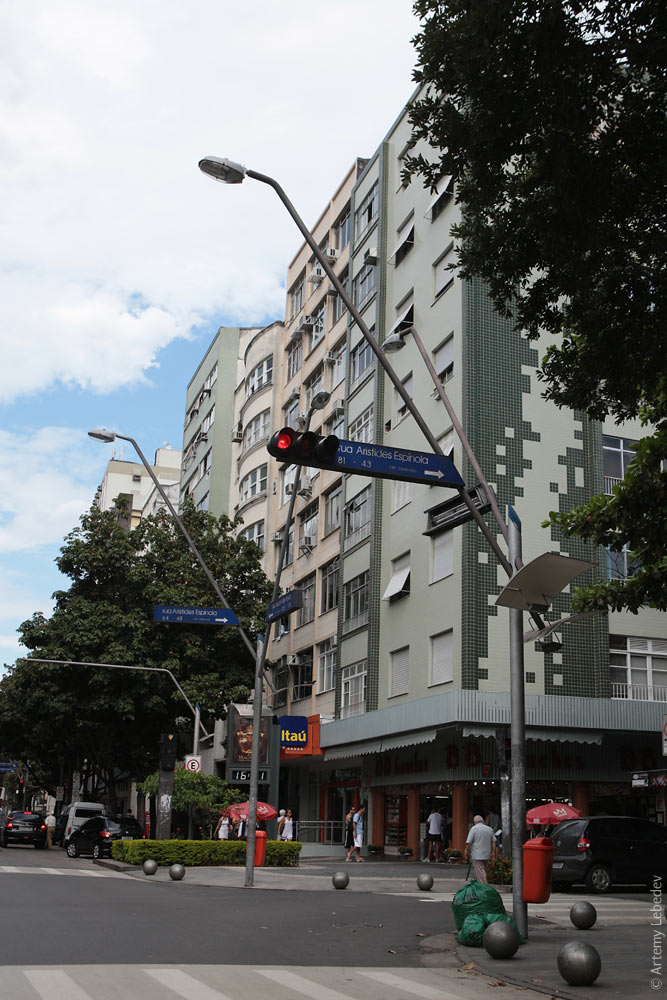 All is well, all is under control thanks to the tourist police, whose motto is “To protect the tourist.” The flag in the clear pocket indicates the language spoken by the police officer. 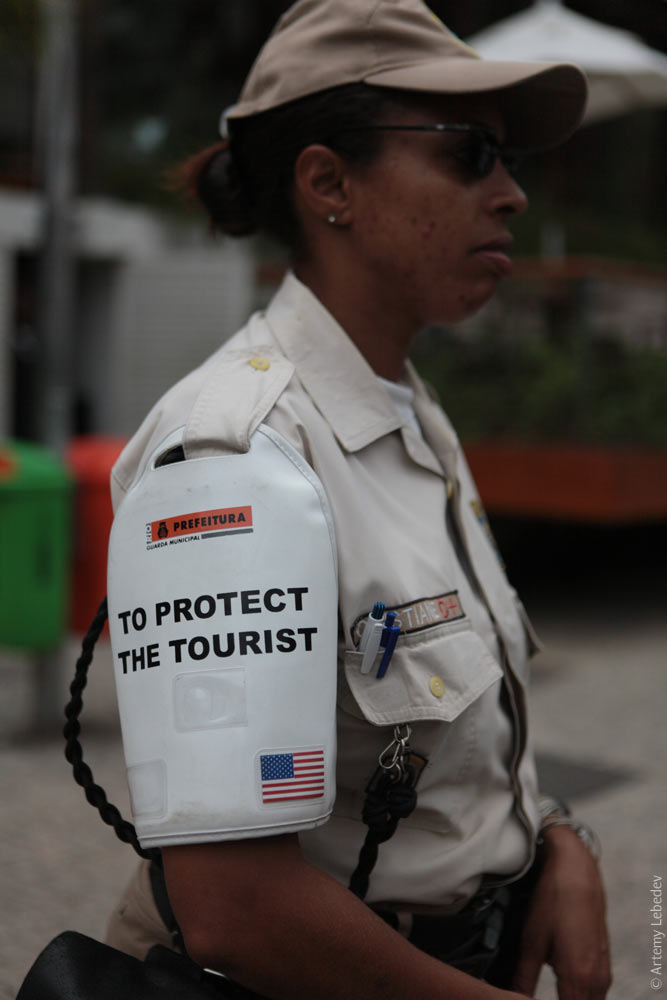 I had the urge to rise up over the city and see everything from above. Once again, it feels like the exact same thing could have just as easily been done in Petropavlovsk-Kamchatsky. 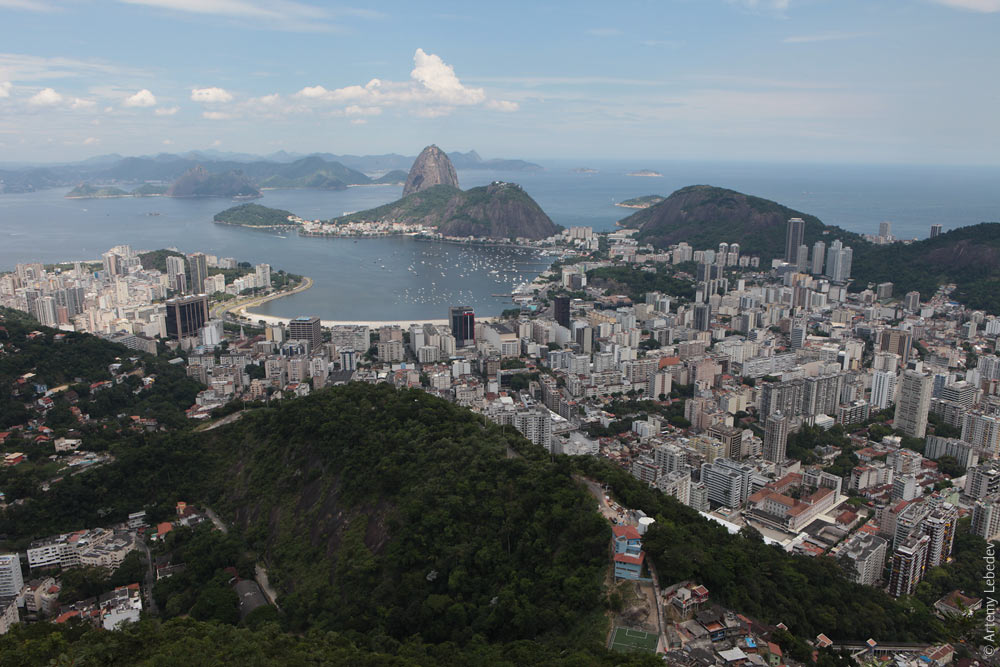 Crap, it’s that awful Jesus with the outstretched arms again. Not a single movie has been made about Rio without the cameraman giving in to the temptation of shooting this supremely tasteless statue from the air. Time to move on. 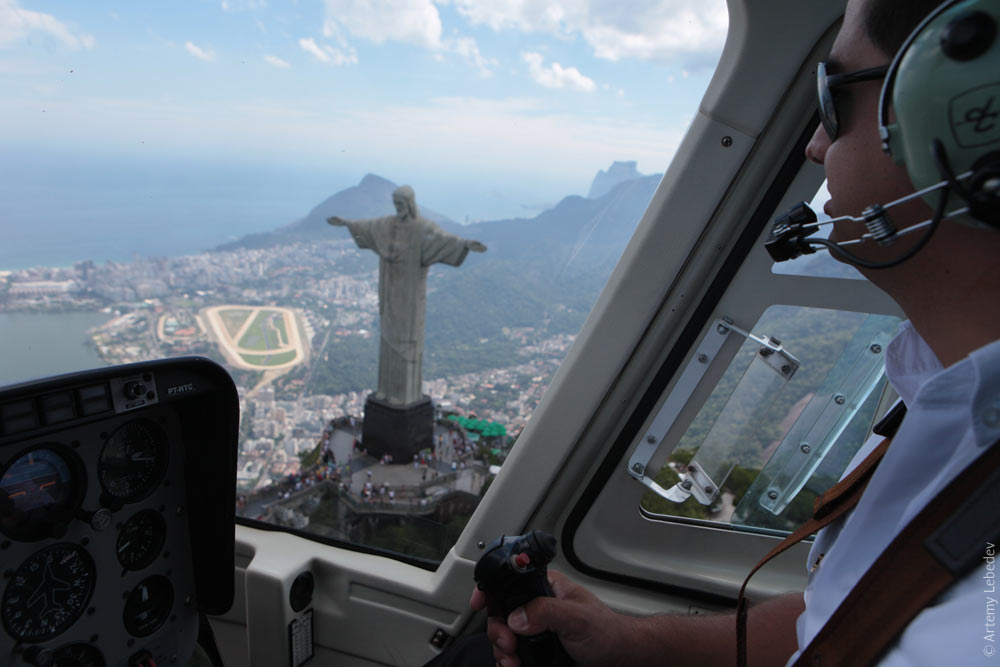 And here comes the beauty. This is a favela, a poor neighborhood. Rio has the largest favelas in all of Brazil. 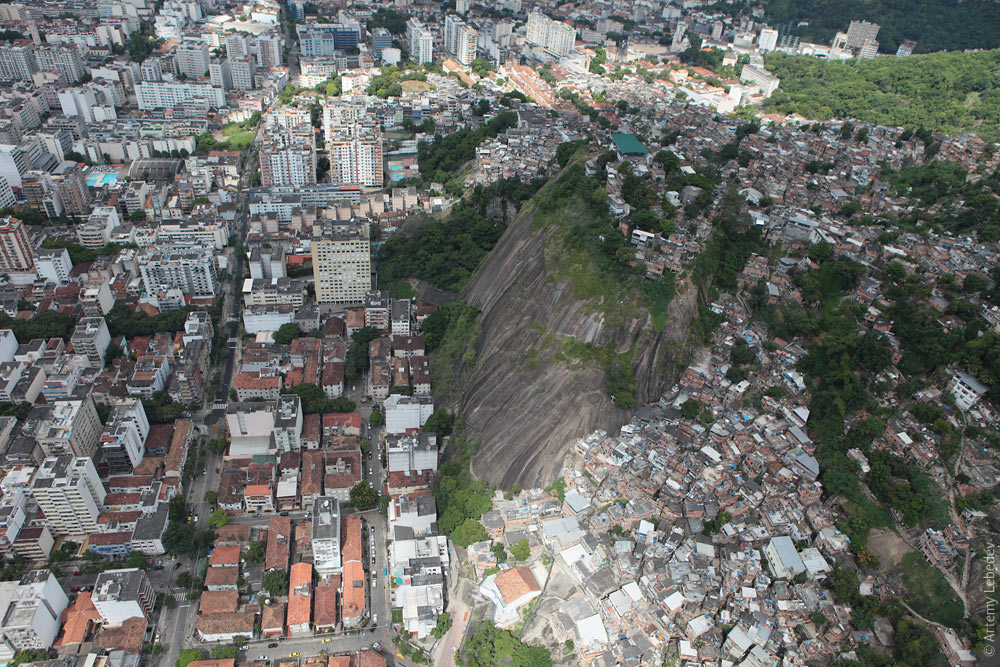 The locals are afraid to venture inside even during the day, much less at night. If you’re not a favela resident, you’ll definitely get robbed, and likely murdered as well. This is what everyone who doesn’t live in the favelas believes. The favelas are inhabited by the poorest of the poor; everyone sells drugs, steals electricity, and is unfamiliar with the joys of plumbing. How could I possibly pass up the opportunity to visit one? I chose the favela called Rocinha. 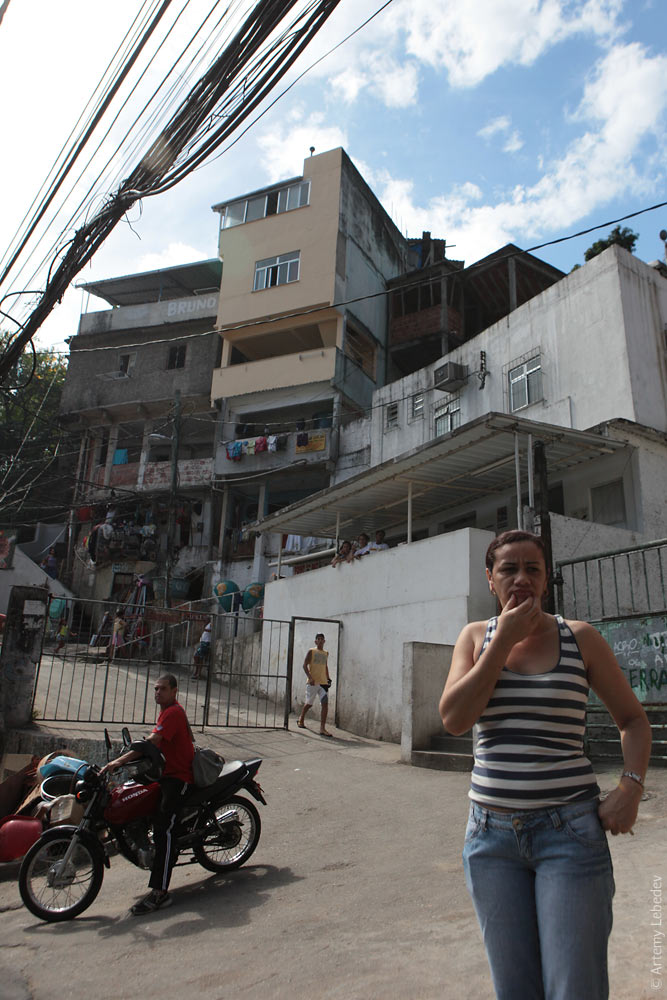 Rocinha’s main street resembles a street in a poor, but plucky village. The whole place is dotted with shops, stalls, and cafés. If you can buy a mattress with a Visa card here, then things aren’t as hopelessly dire as they might seem from the helicopter. 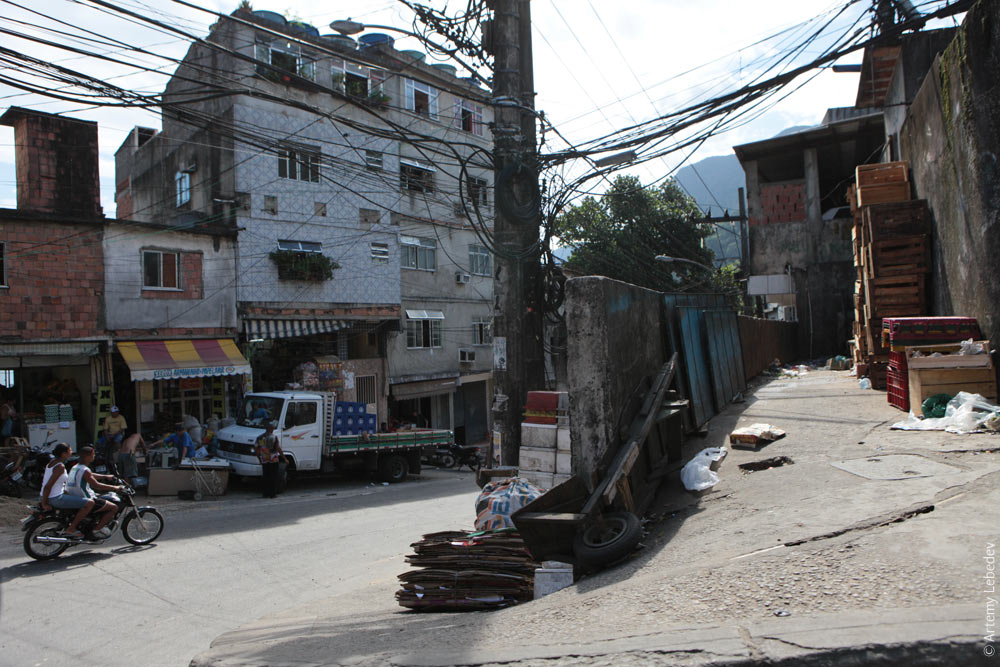 The main thing that differentiates a favela from other city neighborhoods (besides the shabby low buildings) is the sheer amount of trash covering everything in sight. Garbage is tossed right on the ground, because nobody will reprimand you for it when everyone lives in a landfill. 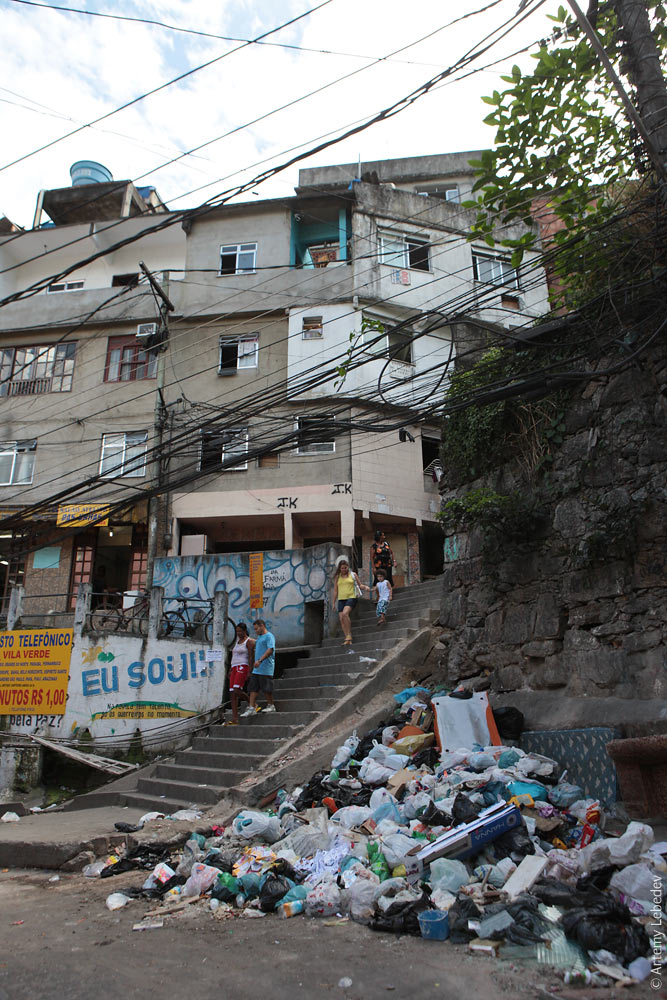 I retained possession of both my wallet and my camera. Although, after listening to the locals, I always left my backpack at my hotel in every city whenever I went out for a walk. The last time I’d done this was in Johannesburg. 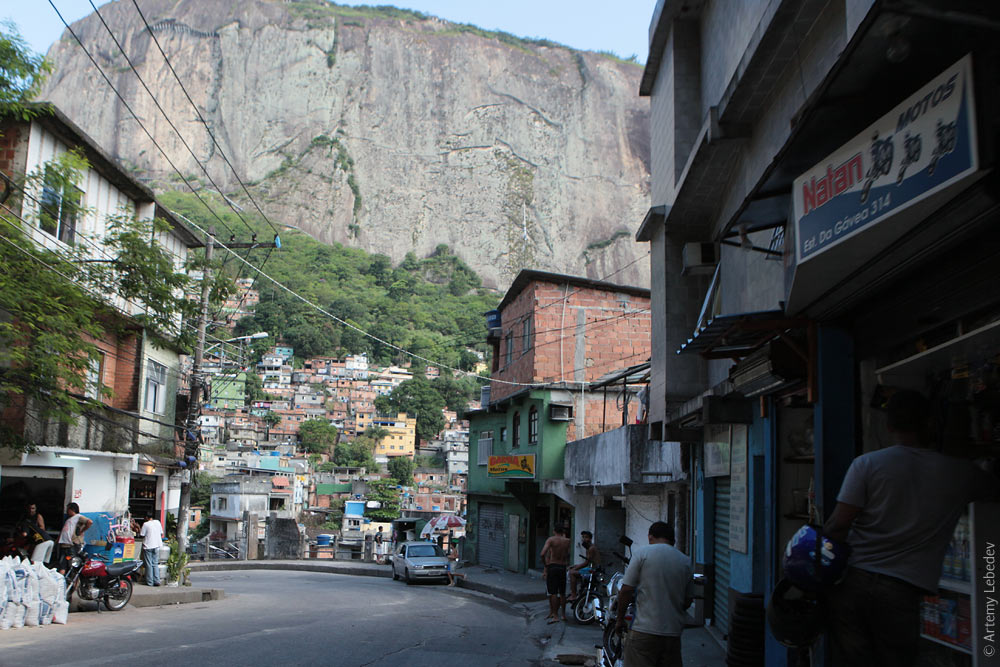 It took about two and a half hours to check in at the Rio de Janeiro airport. The plane to Madrid carries a lot of passengers, and Brazilians do everything at a leisurely pace. A man was shrink-wrapping luggage for anyone who desired, and another sealed it with an industrial heat gun. 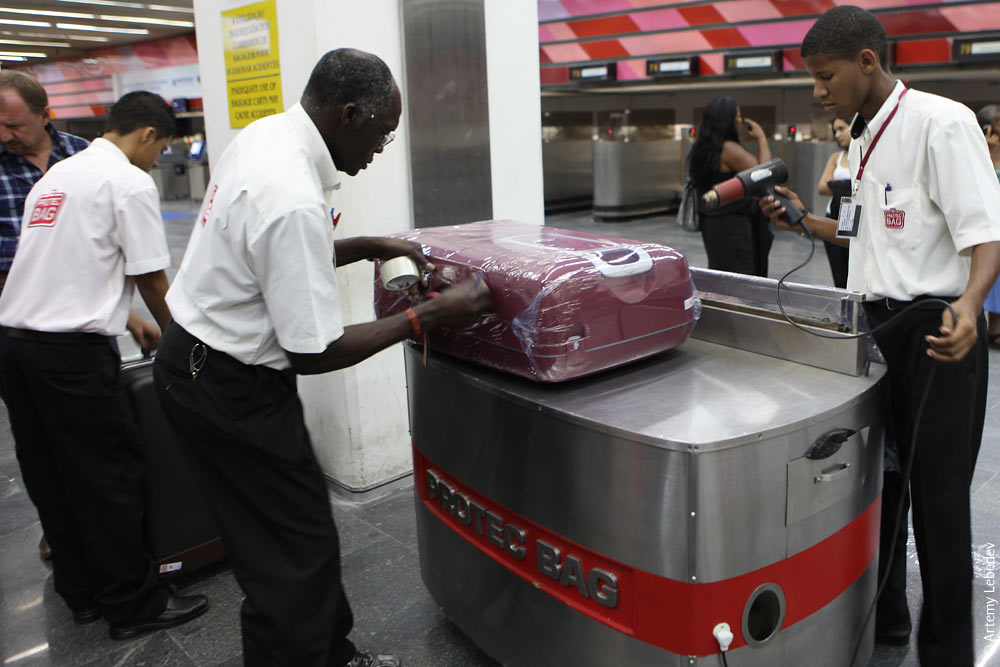 |